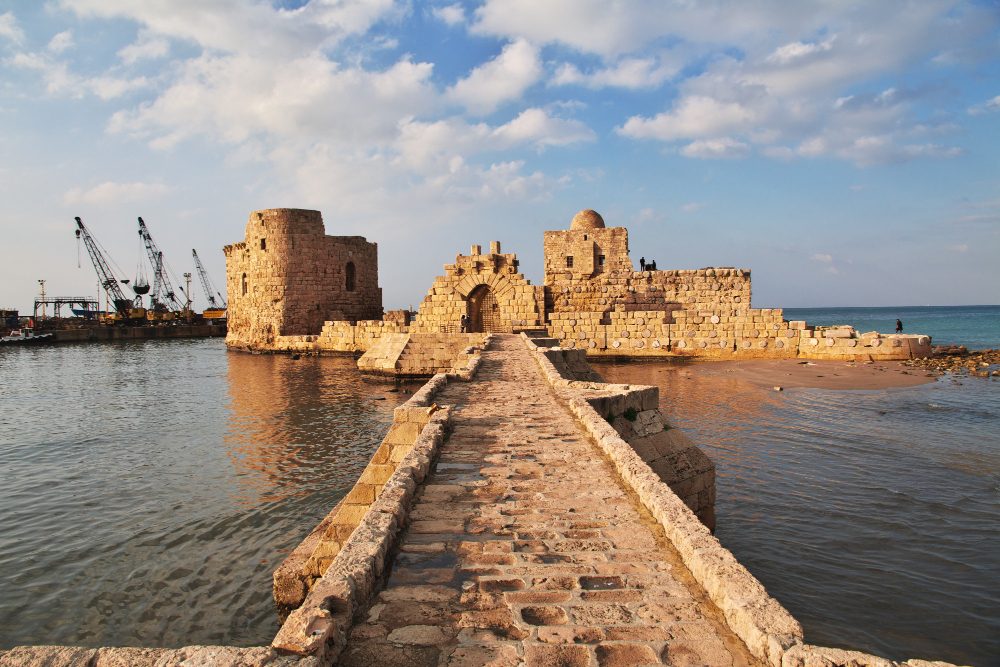
Lebanon has long been a regional hub for healthcare, blending advanced medical services with Mediterranean hospitality and cultural richness. Despite its small size, the country attracts patients from the Middle East, Africa, and even Europe, thanks to its strong reputation for medical excellence, skilled professionals, and relatively affordable treatment costs. Lebanese medical facilities—particularly in Beirut and major cities like Jounieh and Zahle—are known for their well-trained physicians, multilingual staff, and Western-style infrastructure.
Historically recognized for its high-quality education system, Lebanon produces a large number of internationally trained healthcare professionals who return home with experience from top institutions in Europe and North America. This results in a high standard of care, especially in specialized treatments ranging from plastic surgery to oncology. Its warm culture, vibrant landscapes, and Mediterranean charm also make it an appealing destination for patients seeking both treatment and recovery in a relaxing environment.
Lebanon is particularly strong in cosmetic and plastic surgery, reproductive medicine (especially IVF and egg freezing), dermatology, and dentistry. The country is also gaining recognition for oncology treatments, cardiovascular surgeries, organ transplants, and orthopedic procedures such as joint replacements.
Lebanese hospitals often offer comprehensive treatment packages, which include medical services, accommodation, airport transfers, and interpretation support—making the process smooth for international patients. Prices are generally more competitive than those in Western Europe or the United States, often without sacrificing quality. Many patients report excellent recovery outcomes, short wait times, and direct access to top consultants.
One of Lebanon’s standout features is its personalized care. Clinics and hospitals often maintain lower patient volumes, allowing for longer consultations and customized treatment plans. English, Arabic, and French are commonly spoken by medical staff, and many professionals hold dual certifications, making communication and trust-building easier for foreign patients.
Lebanon is well-connected to international travelers via Beirut–Rafic Hariri International Airport, which services direct flights from Europe, the Gulf, and North Africa. The visa process is relatively easy, with many nationalities eligible for a visa on arrival or simple e-visa options. The compact size of the country means short travel times between the airport, hospitals, and accommodation centers.
Medical tourism facilitators in Lebanon typically offer end-to-end services including airport pick-up, hotel arrangements, local SIM cards, and 24/7 support through personal care coordinators. Language rarely poses a barrier, as most private institutions employ multilingual staff fluent in Arabic, English, and French.
Hospitals and clinics are accustomed to catering to diverse cultural and religious needs. Options such as halal food, private recovery suites, female healthcare staff for women, and prayer rooms are commonly available. Lebanon’s natural beauty—ranging from its Mediterranean coast to mountain resorts—provides an uplifting setting for relaxation and recuperation.
Healthcare in Lebanon is regulated by the Ministry of Public Health (MoPH), which supervises hospital licensing, doctor registration, and the enforcement of health standards. Although Lebanon’s healthcare infrastructure has faced some recent economic challenges, leading private institutions maintain international treatment standards and modern equipment.
While not all hospitals have global accreditations, many are in compliance with international best practices concerning infection control, electronic health records, and surgical safety. Private medical institutions also prioritize post-treatment support, offering telehealth follow-ups and recovery management services for patients returning home.
Lebanon’s medical legal framework includes avenues for recourse in the event of malpractice, and patients are encouraged to review contracts and documentation carefully before procedures. For added peace of mind, some international patients seek local health facilitators who ensure transparency in service and pricing.
Lebanon offers a unique blend of medical expertise, personalized care, and cultural comfort. From advanced cosmetic surgery and fertility treatments to cardiac and cancer care, the country delivers high-value healthcare supported by warm hospitality and multilingual communication. With scenic beauty, historic charm, and professional excellence, Lebanon stands out as a destination where patients can find healing in both body and spirit.
Whether you're seeking elective surgery, a second opinion, or long-term care, Lebanon’s medical tourism sector delivers an experience that is safe, caring, and tailored to your needs.
Q1: Why choose Lebanon for medical tourism?
Lebanon offers high-quality care, skilled doctors, and lower treatment costs.
Q2: Which procedures are most popular?
Cosmetic surgery, IVF, dentistry, oncology, and orthopedics.
Q3: Are Lebanese doctors internationally trained?
Yes, many doctors are trained in Europe or North America.
Q4: Is English spoken in hospitals?
Yes. Most staff speak English, Arabic, and French.
Q5: What cities are popular for treatment?
Beirut, Jounieh, and Zahle are key medical hubs.
Q6: Is it easy to travel to Lebanon?
Yes. Beirut Airport has direct flights from many countries.
Q7: Do I need a visa?
Many nationalities get a visa on arrival or apply online.
Q8: Are treatment packages available?
Yes. Packages often include care, stay, and transport.
Q9: Can hospitals accommodate cultural needs?
Yes. Halal meals, prayer spaces, and gender-specific care are available.
Q10: Is the healthcare system safe and regulated?
Yes. The Ministry of Health oversees standards and licensing.
Q11: Do hospitals offer follow-up care?
Yes. Many offer recovery plans and online consultations.
Q12: What currency is used?
The Lebanese Pound (LBP), but US Dollars are also accepted.
Q13: What is the time zone in Lebanon?
GMT+2 (GMT+3 during daylight saving).